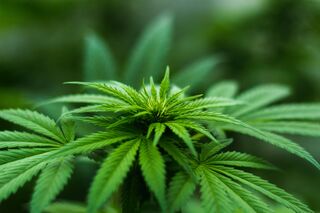Aging
Why Cannabis Could Benefit the Middle-Aged Brain
Regular consumption may boost connectivity.
Posted November 11, 2022 Reviewed by Davia Sills
Key points
- Regular, daily cannabis use in older adults, particularly after retirement, has quadrupled.
- Cannabis affects human brains differentially across the lifespan. Younger brains are vulnerable while older brains may benefit from daily use.
- Cannabis consumption was associated with age-related improvement in brain connectivity, particularly between the hippocampus and cerebellum.

Cannabis users are getting older. Studies suggest that cannabis use in older adults, particularly after retirement, has quadrupled. I’ve written previously about how cannabis affects human brains differentially across the lifespan. Most older users, primarily between 50 and 60 years old, report their most common reason for turning to cannabis is for pain reduction due to illness or injury. Most patients report that cannabis has fewer unpleasant side effects than over-the-counter or prescription pain medications.
A recent study assessed the relationship between long-term medical cannabis use and cognitive function in a sample of middle-aged and older patients with chronic pain. Their results suggest that the use of whole-plant medical cannabis does not have a negative impact on cognition in older patients. It is critical to take notice that this study, as well as most other epidemiological studies, utilized the whole plant rather than specific extracts. The benefits from specific components of the plant remain to be fully defined. Indeed, the greatest benefits might only be realized from the aggregate actions of all the components of the plant.
One important consideration for the older user is that dispensaries now offer products with increasing potencies. From 1995 until 2012, the concentration of THC in cannabis products tripled from 4-12 percent THC. Today, the level of THC often exceeds 20 percent. The developing or adolescent brain cannot tolerate such high doses. Research has shown that the normal development of the brain is impaired, and the consequences can last into adulthood.
The apparently opposite effects of cannabis on older versus younger brains may be mediated by age-related changes in the endocannabinoid system that include a decrease in the number of cannabinoid receptors throughout the brain. The few human studies of the effect of cannabis on the brain in middle-aged or older adults found little or no negative effects on cognitive function. Longitudinal studies that compared pre- and post-exposure performance reported that cannabis was associated with improved cognitive task performance in middle-aged adults. My laboratory has demonstrated similar results using aged animals.
Cannabis Use and the Older Brain
The current study by Watson et al. examined the effects of cannabis use in older adults (60 to 88 years old with no history of alcohol or other substance use disorder) on resting state functional connectivity. This measure is sensitive to aging and cognitive decline. Older adult cannabis users, relative to non-users, had significantly greater neuronal communication between the cerebellum and hippocampus. The changes in these brain regions are important because they express very high levels of cannabinoid receptors, and both structures play important roles in cognition.
During normal aging, the number of endogenous cannabinoid receptors declines. The loss of these cannabinoid receptors correlates with an increased level of inflammation in these brain regions and a loss of neurons in the hippocampus. The hippocampus is critical for learning and memory. The loss of cannabinoid receptors may contribute to age-related memory impairments.
Studies in my laboratory reported improved memory, decreased brain inflammation, and increased hippocampal neurogenesis in old brains after the daily stimulation of cannabinoid receptors. The potential benefits are important given that the cerebellum and hippocampus are highly vulnerable to the effects of aging. The hippocampus is stable until around age 50, at which point the hippocampus undergoes a rapid period of atrophy. Hippocampus atrophy is a consistent finding in individuals with mild cognitive impairment. The cerebellar volume also decreases with normal aging. Reduced resting state functional connectivity between the hippocampus and cerebellum has been found in patients with Alzheimer’s disease.
The current study demonstrated that the cerebellum developed stronger functional connections with the hippocampus in older adult cannabis users as compared to non-users. Their findings suggest that there may be some benefits of cannabis use for the aging human brain.
Finally, it is important to recognize that the current study was a cross-sectional analysis of individuals who either currently used cannabis or did not. Therefore, it is not possible to make causal assertions about whether cannabis-induced positive changes in brain connectivity or prevented a normal age-related decline in brain connectivity. The current evidence from animal research suggests that the latter explanation is most likely. Low-dose, daily cannabis use after age 55 might effectively reduce the degenerative effects of chronic brain inflammation.
LinkedIn/Facebook image: LightField Studios/Shutterstock
References
Watson KK et al. Cannabis Use and Resting State Functional Connectivity in the Aging Brain. Front. Aging Neurosci., https://doi.org/10.3389/fnagi.2022.804890
Wenk GL, Your Brain on Food: How Chemicals Control Your Thoughts and Feelings, 3rd Ed. Oxford University Press.


